 CAIRO – 19 March 2018: Egypt on Monday condemned Turkey’s “occupation” of northern Syria’s city of Afrin and the human rights violations carried out by Turkish troops in the city.
CAIRO – 19 March 2018: Egypt on Monday condemned Turkey’s “occupation” of northern Syria’s city of Afrin and the human rights violations carried out by Turkish troops in the city.
The Egyptian Foreign Ministry said in a statement that the Turkish military operation has violated civilians’ rights and forced them to flee the city.
On Sunday, Turkish forces and their Syrian rebel allies swept into Afrin, taking control of the town’s center after Kurdish YPG forces pulled out, Turkish President Recep Tayyip Erdogan said.
Continuous violations of Syria’s sovereignty is “unacceptable”, the statement read, adding that such violations complicate the political situation, foil current conflict settlement efforts, and worsen the humanitarian crisis in the country.
The statement also reaffirmed Egypt’s support of a political solution in Syria, which would preserve the unity of the Syrian state and institutions.
On January 24, Egyptian Foreign Ministry Sameh Shoukry and then-U.S. Secretary of State Rex Tillerson stressed on the importance of coordinating efforts to support a political solution agreed upon by all parties to the crisis, said Foreign Ministry spokesman Ahmed Abu Zeid.
Shoukry stressed the importance of supporting the aspirations of Syria’s people, protecting its national unity and preserving its institutions. He asserted Egypt’s efforts to defuse the crisis in Syria, especially the international resolutions in Geneva under U.N. auspices.
Turkey slammed a motion approved by the European Parliament on March 15 that calls for a halt to Ankara’s military offensive in the Afrin region, saying it demonstrated “clear support” for militants.
On January 20, Turkey launched the “Operation Olive Branch” military operation in Afrin to clear the city from the Syrian-Kurdish YPG militia that Turkey considers terrorists.
Hundreds of residents were seen fleeing the city of Afrin, with the Observatory reporting that more than 2,000 arrived in an area controlled by pro-regime forces.
Hundreds more were on the road, it said, after Turkish forces and their allies arrived to within less than two kilometers (one mile) of the city on March 10, sparking fears it could be besieged.
Syria’s conflict broke out in March 2011 with peaceful protests against Syrian President Bashar al-Assad, but a regime crackdown paved the way for a full-fledged war.
At least 353,935 people have died since, including more than 106,000 civilians, the Observatory said in March, providing a new overall death toll for the conflict. More than 19,800 children are among the dead, it said.
Source: https://www.egypttoday.com/Article/2/45677/Egypt-condemns-Turkey%E2%80%99s-%E2%80%98occupation%E2%80%99-of-Afrin

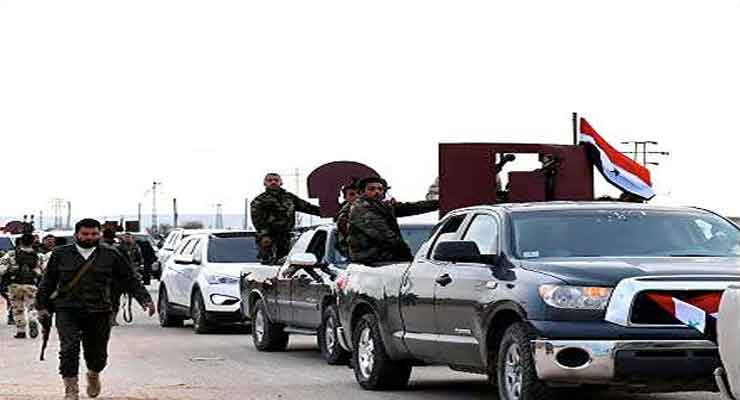 Syrian state television showed a convoy of pro-government fighters entering the Kurdish Afrin region in Syrian Kurdistan (Rojava) on Tuesday to help fend off a Turkish assault.
Syrian state television showed a convoy of pro-government fighters entering the Kurdish Afrin region in Syrian Kurdistan (Rojava) on Tuesday to help fend off a Turkish assault.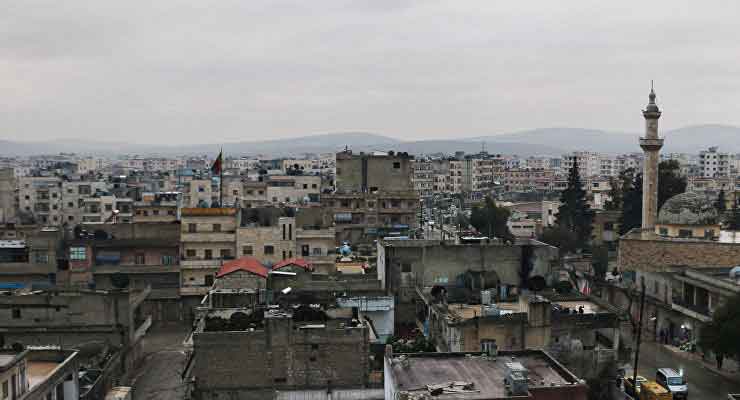 YPG representative in Afrin Brusk Haseke told Sputnik that the Syrian government forces have entered Afrin besieged by the Turkish military. The Syrian armed forces, however, yet to confirm this information.
YPG representative in Afrin Brusk Haseke told Sputnik that the Syrian government forces have entered Afrin besieged by the Turkish military. The Syrian armed forces, however, yet to confirm this information.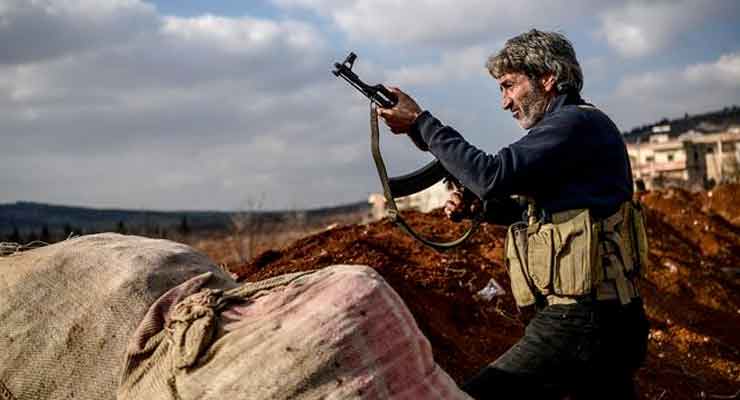
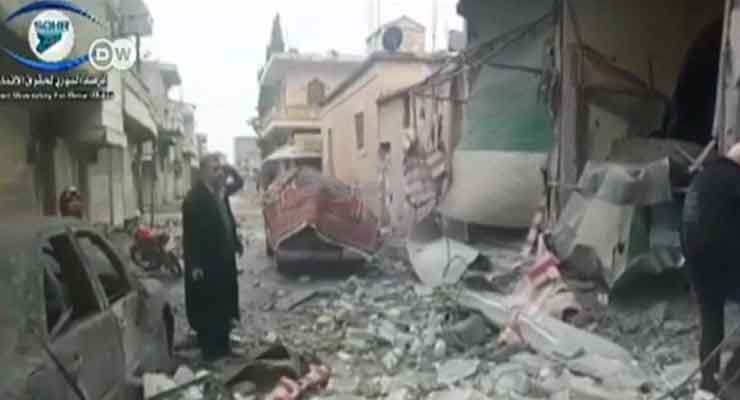 The US president has told his Turkish counterpart Recep Tayyip Erdogan to rein in the offensive on Syria’s Kurdish enclave of Afrin, the White House says. Concerns the NATO allies may be brought into conflict are rising.
The US president has told his Turkish counterpart Recep Tayyip Erdogan to rein in the offensive on Syria’s Kurdish enclave of Afrin, the White House says. Concerns the NATO allies may be brought into conflict are rising.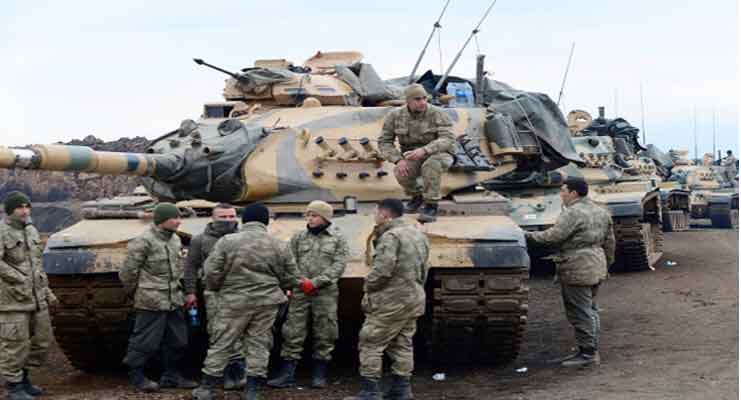 A video has appeared on YouTube showing the Kurdish YPG militia launch an anti-tank guided missile at a Turkish Leopard tank as the Turkish Army advanced toward Afrin in an offensive against the Kurdish forces.
A video has appeared on YouTube showing the Kurdish YPG militia launch an anti-tank guided missile at a Turkish Leopard tank as the Turkish Army advanced toward Afrin in an offensive against the Kurdish forces.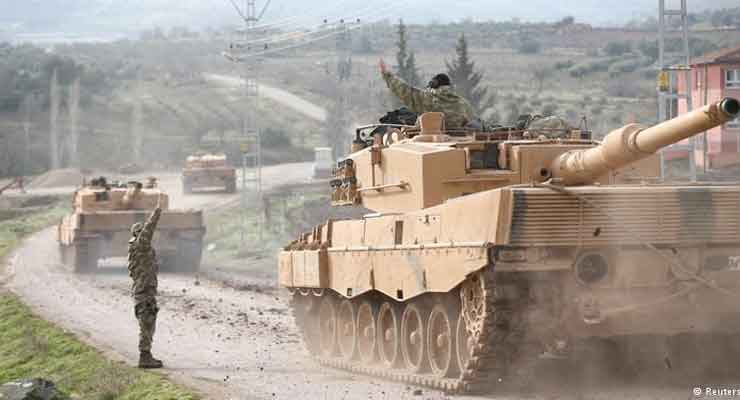 Turkey says its military forces have crossed into Syria’s Kurdish enclave of Afrin. Ankara began an air assault to take the area, held by the US-backed Kurdish People’s Protection Units (YPG), on Saturday.
Turkey says its military forces have crossed into Syria’s Kurdish enclave of Afrin. Ankara began an air assault to take the area, held by the US-backed Kurdish People’s Protection Units (YPG), on Saturday.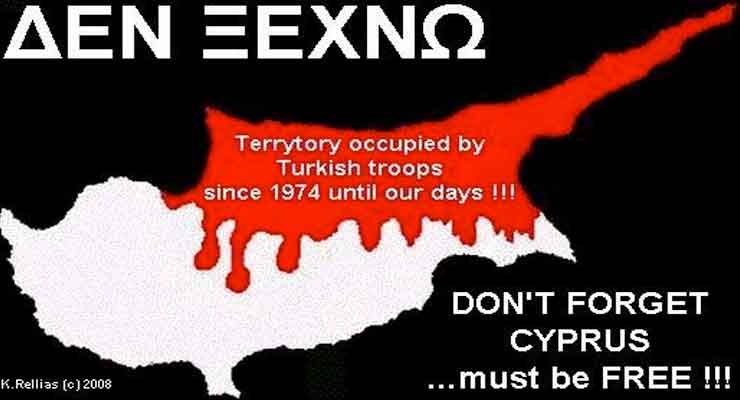 By Uzay Bulut,
By Uzay Bulut,